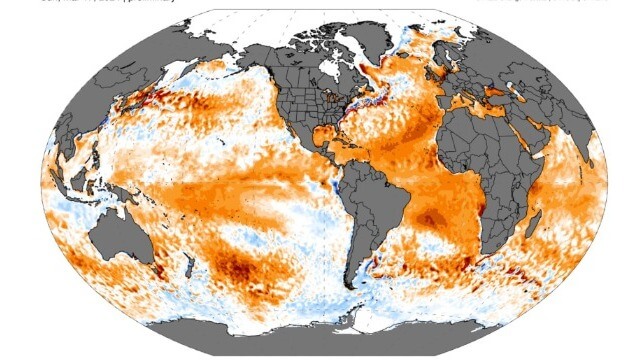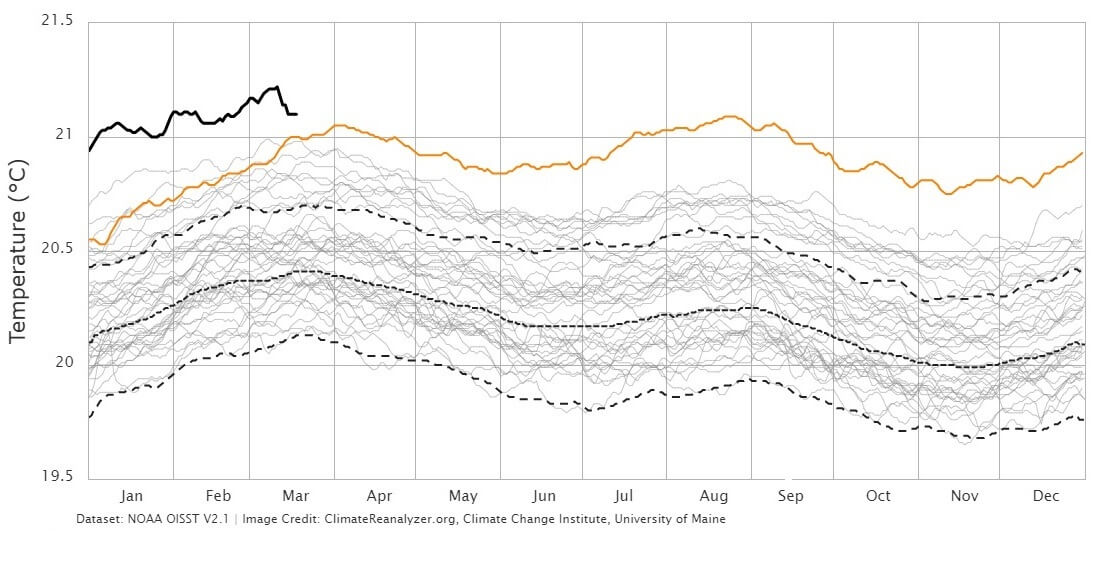Earth's Oceans Continue Yearlong Streak of Heat Records

When the ocean's average surface temperature hit a new record high in March 2023, it set off alarm bells in the scientific community - but few experts predicted that ocean temperatures would keep climbing off the chart. The average sea surface temperature has set a new daily record every day for the past 12 months, and is now beating the records set last March.
In the near term, the most immediately visible effect has been coral bleaching - the loss of photosynthetic algae that lives on (and grows) a coral reef. Australia's famed Great Barrier Reef is in the middle of a damaging bleaching event now, and the Florida Keys' corals suffered through historic bleaching conditions last year.
 Global average sea surface temperatures from March 2023 (orange) through March 2024 (blue) broke daily records every day for a year, and set new all-time records multiple times (UMaine / NOAA)
Global average sea surface temperatures from March 2023 (orange) through March 2024 (blue) broke daily records every day for a year, and set new all-time records multiple times (UMaine / NOAA)
The ocean surface temperature is still rising, and climate scientists aren't entirely sure why. Climate change would be an easy explanation, but the pace is much faster than the increases predicted by climate models. The El Nino weather pattern is a major natural driver of average surface temperature, but it is currently fading, and the thermometer is still rising.
One possible explanation could be cleaner air. Since the IMO2020 sulfur regulation took effect, ships are emitting far less SOx in their exhaust, meaning that there is less sunlight-absorbing pollution over the trade lanes. A similar phenomenon may be occurring with Saharan dust storms, which usually send vast quantities of particulate matter drifting out over the Atlantic - but are not doing so with the usual intensity. Reduced levels of these pollutants would let more light through to the surface, heating up the ocean.
“I’m not hearing any scientists that have a convincing explanation of why it is we’ve got such a departure,” marine geophysicist Rob Larter of the British Antarctic Survey told the New York Times. "The impression at the moment is that things have gone further and faster than we expected."
Marine scientists warn that the heat could get worse in 2024, and that could have big implications for the hurricane season. Warm water fuels tropical storms, and the North Atlantic has never been warmer in recorded history. When combined with an expected La Nina weather pattern, which favors hurricane development in the Atlantic, the heat could fuel an "explosive hurricane season," meteorologist Stephanie Abrams of The Weather Channel said last week.
No comments:
Post a Comment